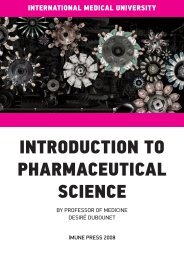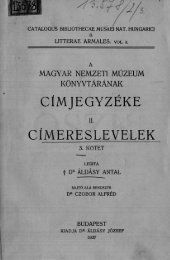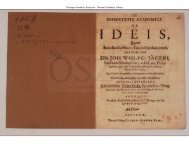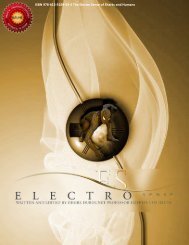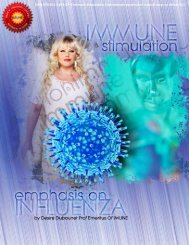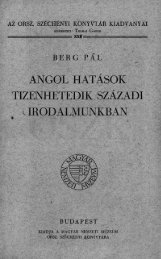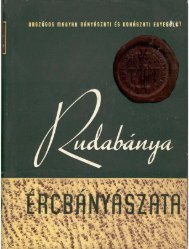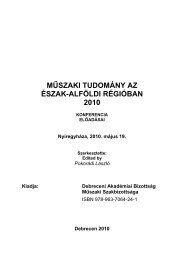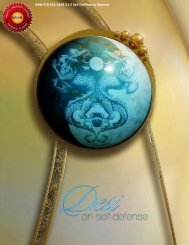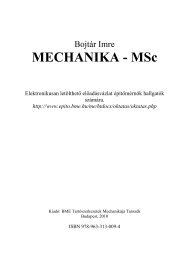You also want an ePaper? Increase the reach of your titles
YUMPU automatically turns print PDFs into web optimized ePapers that Google loves.
In 1772 Slavery was declared illegal in England, including overseas slaves not living in England.<br />
Lord Chief Justice Mansfield ruled that English law did not support slavery. But today the sugar<br />
slavery continues. Poor Blacks are grossly mistreated and paid almost nothing to harvest a dealy<br />
product. and this appalling process is rampant.<br />
Later Barbados and the British Leewards were extremely successful in the production of sugar<br />
because it counted for 93% and 97% respectively of each island’s exports, largely due to changes<br />
in the eating habits of many Europeans.<br />
In "The World of the Guilds in Venice and Europe, c. 1250 - c. 1650", we are told of "...the city's<br />
(Antwerp in the 1560's) great luxury industries: tapestries, furniture, sugar, and spices..."<br />
William Harrison, in his 1577 description Of Elizabethan England, (from "Holinshed's Chronicles")<br />
complains of the current high prices....<br />
...in times past, when the strange bottoms were suffered to come in, we had sugar for fourpence<br />
the pound, that now at the writing of this Treatise is well worth half-a-crown; raisins or currants for<br />
a penny that now are holding at sixpence, and sometimes at eightpence and tenpence the pound;<br />
nutmegs at two pence halfpenny the ounce, ginger at a penny an ounce, prunes at halfpenny<br />
farthing, great raisins three pounds for a penny, cinnamon at fourpence the ounce, cloves at two<br />
pence, and pepper at twelve and sixteen pence the pound. Whereby we may see the sequel of<br />
things not always, but very seldom, to be such as is pretended in the beginning. The wares that<br />
they carry out of the realm are....<br />
As we can see from the above, when sugar was half a crown for a pound, cinnamon was fourpence<br />
the ounce. Imported goods rose and fell with various import laws, but were eminently reasonable<br />
in price at all times. SUGAR WAS CHEAPER THAN CINNAMON, AND CINNAMON WAS CHEAP! Also,<br />
we can see that in relationship to other commodities, sugar has come down dramatically in price<br />
as well. This would perhaps account for all those description from foreign ambassadors about the<br />
English having bad teeth!<br />
By the Elizabethian period, the best sugar was considered to be that of Madiera, with those of<br />
Barbary (Morocco) or the Canaries a close second.<br />
New World Sugars Feed Old World Wars<br />
During Drake's raid on Panama,1572-73, his crew went up a river at Magdelena called the Rio<br />
Grande and a few miles up it saw a Spaniard. When he saw they were English he ran off , and going<br />
ashore, they discovered, "many sorts of sweetmeats and conserves, with great store of sugar,<br />
being provided to serve the fleet returning to Spain." according to "Sir Francis Drake Revived" By<br />
Philip Nichols.<br />
In 1579, the Golden Hind reached Ternate in the Moluccas (the Spice Islands). "The Sea King-Sir<br />
Francis Drake and His Times" tells us that Drake befriended Sultan Babu, and received "six tons of<br />
cloves" and "quantities of pepper, ginger, rice, bananas, and sugar cane."<br />
Another Source, "Sir Francis Drake-The Queen's Pirate", says, "The king promised to send provisions<br />
to the ships, and he was as good as his word. There were rice, chickens, raw sugar, syrup, sugar<br />
cane..."<br />
According to Drake himself, in "The World Encompassed", "we received what was there to be had<br />
300 301






